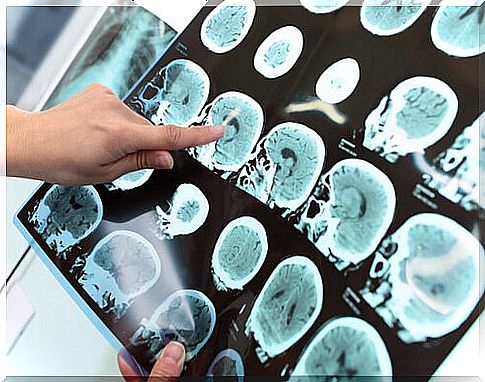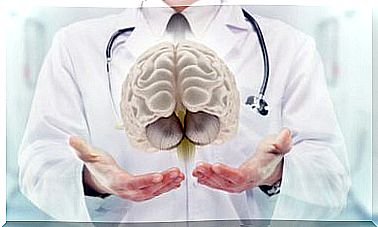Alzheimer’s Principle, Can The Process Be Stopped?
Is it possible to stop the degenerative process caused by Alzheimer’s? We review the first symptoms and the measures to allow a slower progress.

Alzheimer’s disease is one of the pathologies whose diagnosis has increased the most in recent decades. Initially, a person with Alzheimer’s may experience mild confusion and trouble remembering some things.
Then, over time, you are able to forget about important people in your life, and you may even undergo drastic personality changes. It is that, indeed, this condition wreaks havoc on the patient and their families. For this reason, many people wonder if faced with the beginning of Alzheimer’s it would be possible to stop the degenerative process.
What is Alzheimer’s?
The brain acts as a control center for the body : it interprets internal and external stimuli and transmits orders that generate responses. In this way, it is responsible for coordinating all its functions, such as feeling thirsty, walking, standing, remembering, talking, among many others.
Alzheimer’s is a degenerative neuronal disease that carries numerous symptoms of dementia. The term “dementia” refers to a group of brain disorders that causes loss of intellectual and social skills.
These skills include cognitive ability and memory, as indicated in a guide on the disease published by the Centro de Alzhéimer Fundación Reina Sofía.
As we age, neurons deteriorate and die, which implies the decline of many brain functions. Therefore, older adults are more vulnerable to dementia.
However, although it is generally associated with aging, it can also affect young people with risk factors. According to a study published in Cell , these factors include genetic alterations, neurodegenerative conditions and even inflammatory disorders, which lead to unhealthy aging.
Symptoms associated with Alzheimer’s

With the advance of the degenerative process of neurons, many patients register a profound change in their daily behavior and personality. The Alzheimer’s Association -AA- drew up a list called The 10 signs in which it alerts about the most frequent signs. We have listed them below so that you can recognize them:
- Loss of motivation
- Difficulty interpreting images.
- Loss of notion of space and time.
- Difficulty performing normal tasks.
- Difficulty solving simple problems.
- Changes in mood, behavior, or personality.
- Problems with written language or speech.
- Memory changes that make daily activities difficult.
- Placing objects in strange places and difficulty finding them.
- Difficulties in making decisions and loss of good judgment.
Causes associated with Alzheimer’s

There is no medical consensus on the triggering causes of Alzheimer’s. However, in addition to aging, the following risk factors are included in a guide called Alzheimer’s Disease Basics published by the AA:
- Bad eating habits.
- Overweight, diabetes, and high cholesterol.
- Smoking, alcoholism and sedentary lifestyle.
- Cardiovascular problems, such as high blood pressure.
- Consumption of toxic chemicals, such as narcotics.
- History of relatives who have suffered from the disease ; in this case, the probabilities increase if more than one relative has had it.
- Little or no social activity, leading to progressive brain deterioration.
- Brain damage caused by accidents, trauma, or illness.
Can you stop the onset of Alzheimer’s?
When talking about stopping the onset of Alzheimer’s, it is generally intended to prevent the progression of symptoms or make it slower. Likewise, it seeks to prevent it by limiting risk factors.
Below, based on the risk factors mentioned above, we list changes in habits that help take care of the mind and body. Keep in mind, however, that these lifestyle modifications are not a substitute for medical treatment under any circumstances.
- Follow a balanced diet, avoid excess food and empty calories.
- Practice physical exercises on a regular basis, at least 30 minutes a day, as recommended by the World Health Organization.
- Maintain body weight to prevent overweight and cardiovascular disease.
- Eat foods that contain vitamin C and antioxidants.
- Drink alcohol moderately (or better, avoid it), do not smoke and do not consume toxic substances.
- Reduce stress levels with activities like meditation and yoga .
- Respect moments of rest and entertainment.
- Sleep eight hours a day and have a good quality of sleep.
- Maintain healthy relationships and frequent positive environments.
- Maintain good self-esteem and avoid negative thoughts.
- Seek psychoanalytic treatment when necessary.

The beginning of Alzheimer’s must be supervised by a professional
Beyond the keys to prevent the advancement of Alzheimer’s previously mentioned, the guidance and supervision of a doctor is essential from the moment the first symptoms are detected.
In fact, preventive consultation is also highly advisable. In this way, the opportunity would be generated to modify habits that, in the professional’s opinion, could accelerate the cognitive deterioration of the brain.








